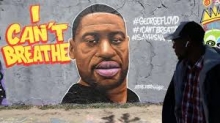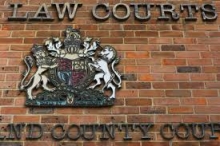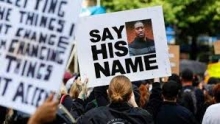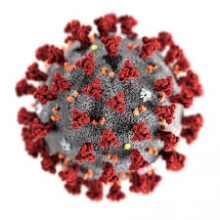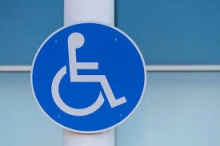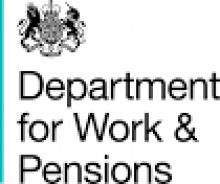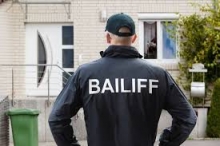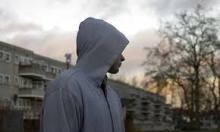Work TV
Watch our TV Channel dedicated to the ‘World of Work’. Explore our video library for informative videos featuring career opportunities at leading companies, franchising opportunities, further education and recruitment professions and their services.
Simon Collyer
£63 Million For Local Authorities to Assist Those Struggling to Afford Food and Other Essentials
FOOD ASSISTANCE - Additional money will sit alongside the £6.5 billion of extra support being provided through the welfare system to support the most vulnerable in society.
An additional £63 million has been confirmed by government (Thursday 11 June) to be distributed to local authorities in England to help those who are struggling to afford food and other essentials due to coronavirus.
Local authorities are already working hard to support those who are vulnerable, and this additional funding will contribute to that work.
Many have existing mechanisms to provide this support in a way that suits the needs of their community. This includes provision of cash payments, food vouchers, or alternative means of support.
This funding will sit alongside the £6.5 billion of extra support the government is providing through the welfare system to ensure the most vulnerable in our society are protected throughout this crisis.

Image: Victoria Prentis MP.
Food Minister Victoria Prentis MP, who leads the cross-government Food and Essential Supplies to the Vulnerable Task Force, said:
“The extraordinary circumstances of this pandemic have meant real financial difficulty for many households, with people left facing hard choices.
“To help those who are struggling to afford food and other essentials, today we are announcing an additional £63 million which will be given to and distributed by local authorities to those in need.
“Local authorities are already doing a brilliant job helping the most vulnerable in their communities and this extra money will enable them to help more families and individuals at this extremely difficult time.”
Further government support is available for those struggling as a result of coronavirus. If you need urgent help, contact your local council to find out what services are available in your area.
ABC Comment, have your say below:

Black Live Matter - Learning More About Becoming Anti-Racist
ANTI-RACISM If you like us were appalled by the recent events in the US - below is are resources you can use from the US to learn more about combatting racism. It is a US-based list but very useful none the less.
Before that however we would like to highlight discrimination in housing.
For example:
- In Chicago, 75% of people experiencing homelessness are black, though they comprise 30% of Chicago’s population
- In the US overall, 40% of people experiencing homelessness are black, though they comprise 13% of the general population
Though the situation in the US is particularly stark, other countries also struggle with this issue. For example,
- In Canada, indigenous peoples (Métis, Inuit, First Nations) are between 28-34% of those in homeless shelters, while accounting for 4% of the general population;
- In Australia, aboriginal people or Torres Strait Islanders comprise 20% of the homeless population but are 3% of the general population.
It is not all bad news, the UK for example is tackling homelessness:
The UK Rough Sleeping Taskforce, headed by IGH board chair Dame Louise Casey, has announced that local authorities have been able to house 14,610 people as part of their COVID-19 emergency response, including rough sleepers, people in communal temporary accommodation, and individuals whose housing became unstable during the pandemic. These numbers represent 90% of known rough sleepers across the country.
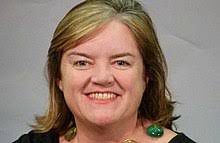
Image: Dame Louise Casey.
As the UK lockdown measures ease, the Taskforce has shifted its focus from emergency response to long-term system change; Dame Casey told press last week that the government was determined not to return to business as usual in homelessness management, but instead use the COVID-19 crisis as an opportunity to end rough sleeping for good. “The goal is ambitious – together, we want to do everything possible to ensure that vulnerable people who were sleeping rough and have come inside during this pandemic – some for the first time in a very long time – do not go back to the streets.”
These efforts include new availability of 6,000 housing units and an injection of £433 million to support. Key to the Taskforce’s strategy is not only ensuring that those housed during the pandemic do not return to the street but also taking the opportunity to shift how housing crises are managed and eliminating rough sleeping entirely.
Said Dame Casey, “We can’t go back to communal settings, and I don’t want to; nor can we let anyone go back to living in encampments. This could be a moment where we lift the safety net off the streets, ensuring that those who want and need help do not have to go to the street first. This is an opportunity to ensure that rough sleeping need not be part of anyone’s pathway.”
Learn more about anti-racism
This document was created to be used as a resource for anyone looking to broaden their understanding of anti-racism and get involved to combat racism, specifically as it relates to anti-Blackness and police violence. Within this guide, please find a variety of resources to explore practical ways to understand, explain, and solve seemingly intractable problems of racial inequity, white supremacy, police violence, and injustice.
Contents:
- Structural Racism vs Individual Racism
- Understanding Implicit Bias
- Steps to Becoming Anti-Racist
- Organizations to Connect With
- How to Find Protests and Rallies
- Where to Donate, Sign Petitions, Contact Reps.
- Justice For Breonna Taylor/Birthday For Breonna
- Prepare for Election Day, This November
- Having Conversations about Racism and Bias
- Articles to Read
- Books to Read
- Videos to Watch
- TV Shows and Movies to Watch
- Podcasts to Listen to
- Black Businesses to Support
- Children’s Anti-Racist Resources
- Structural Racism vs Individual Racism
Racism describes a system of power and oppression/advantage and disadvantage based on race. Structural racism is a system, or series of systems, in which institutional practices, laws, policies, social- cultural standards, and socio-political decisions establish and reinforce norms that perpetuate racial group inequities. Within the context of the United State of America, and other nations, structural racism takes the form of white supremacy; the preferential treatment, privilege, power, access, networks, and access to opportunities available to white people, which often designate communities of colour to chronic adverse outcomes.
Individual racism refers to a person’s racist assumptions, beliefs, or behaviours. Individual racism stems from conscious and unconscious bias and is reinforced by structural racism. Please visit the list of books, videos, movies, and TV shows within this guide to learn more about how racism functions and affects all of our day-to-day lives.
Understanding Implicit Bias
Implicit bias refers to the attitudes or stereotypes that affect our understanding, actions, and decisions in an unconscious manner. These are mental shortcuts that help us more easily make sense of our incredibly complex world. These biases, which encompass both favourable and unfavourable assessments, are activated involuntarily and without an individual’s awareness or intentional control. These associations develop over the course of a lifetime beginning at an early age through exposure to direct and indirect messages.
We all have implicit biases, no matter our identities and regardless of how educated we are on the topic. These biases manifest themselves in ways that have impacts we may not desire.
Have you ever had a knee-jerk reaction or thought related to a person or situation, and then thought to yourself something like “That wasn’t cool of me” or “No, that is not the right thing to think;” that is your implicit bias and then your active consciousness reconsidering that bias.
It is difficult for many of us to talk about implicit or explicit bias; we are often brought up to believe that we live in a “just world,” that we treat people how they should be treated and as a result people get what they deserve. Bias directly contradicts that world view and our self or group concept.
Though we can learn and internalize these messages and biases early in our lives, implicit biases are malleable and the associations we form can be unlearned. You are engaging with this resource guide, in a meaningful way, lets me know that you are interested in learning how to shift your implicit biases toward an anti-racist lens. To learn more about how bias is learned, internalized, unlearned, and changed, please visit the list of books, articles, tv shows, and movies included in this guide.
Steps to Becoming Anti-Racist
Originally published by WhereChangeStarted.com
Awareness
This is your initial awakening to the racial injustices around you. You are not only finally able to see that they exist, but that you play a crucial role in stopping the cycle by becoming anti-racist.
Being aware of racial injustices or understanding that you have privilege will not make you antiracist, however. You have to keep going through the remaining stages.
Brace yourself though. This awakening is not a one-time event. It will happen once, on a broad level regarding race and white supremacy, but will continue to happen on issue specific levels as you dive deeper into the work and create space for more and more varied lived experiences in your understanding of these systems.
Education
This is where you become an intentional student in this work. If you are engaging with this resource guide, it is likely the stage you are in right now. From webinars, lectures, and workshops, to blog posts, books, and documentaries, you study the complexities of racism and the many ways it manifests within our society.
The point of educating yourself on race and white supremacy isn't for you to be able to articulate these complex topics in intellectual debates about inequality. Its about you being able to develop the eye for identifying white supremacy in its many forms (in others and in yourself) without being hand-held to do so.
This stage of the process is crucial to the remaining stages of the work because you need a solid foundational understanding of white supremacy and race in order to begin the work of dismantling your own thoughts, beliefs, and practices that perpetuate and uphold it.
Do this with intention. Do not just accumulate resources to skip, without diving deep into them.
Self-Interrogation
This is the stage where the real self-work begins. This is where you disarm yourself of the racist tools of defence that you have used to bypass the work of anti-racism and harm people of colour in your efforts. This is where you begin to replace them with tools of accountability to stop racist behaviours.
Self-interrogation is a skill and a process. Being effective and efficient at this stage takes time and practice.
While it will start out as the part of this work that source the most discomfort within you, you will eventually get to a place where you’re operating out of a growth mindset and embrace the many ways to identify how you can better be living up to the person you want to be in this fight for human equality.
Community Action
Only after the appropriate effort in the self-interrogation stage of becoming anti-racist can you be trusted to do anti-racism work in a way that honours communities of colour. Attempting to do this part of the work without accomplishing the first three stages is how you end up harming communities of colour with white saviourism, performative allyship, and more (which is just your garden variety of white supremacy to begin with).
In stage four, you incorporate what you have learned during your ongoing process of becoming anti-racist into your everyday life. You leverage your positions of leadership and influence - no matter how big or small - to encourage others to do their own work in anti-racism. You elevate the intellectual contributions and scholarship of people of colour educators and thought leaders in the process.
This stage of the work will not be void of mistakes, but the way those are handled and the number of times they are repeated thereafter (as least as possible), is what will make the difference here. Because leading by example in your failures is but one of the many ways for you to do this work authentically.
Organizations to Connect With & Stay Informed
The Antiracist Research & Policy Center: Website | Twitter | Facebook | Instagram
Audre Lorde Project: Website | Twitter | Instagram | Facebook
Black Lives Matter: Website | Twitter | Instagram | Facebook
Black Lives Matter has various local chapters. Find yours here!
Black Women’s Blueprint: Website | Twitter | Instagram | Facebook
Colour Of Change: Website | Twitter | Instagram | Facebook
Colorlines: Website | Twitter | Instagram | Facebook
The Conscious Kid: Website | Twitter | Instagram | Facebook
Equal Justice Initiative (EJI): Website | Twitter | Instagram | Facebook
Families Belong Together: Website | Twitter | Instagram | Facebook
Higher Heights Leadership Fund: Website | Twitter | Instagram | Facebook
Leadership Conference on Civil & Human Rights: Website | Twitter | IG | FB | Youtube
The Movement for Black Lives: Website | Twitter | Instagram | Facebook | Youtube
NAACP: Website | Twitter | Instagram | Facebook
NAACP Legal Defense Fund: Website | Twitter | Instagram | Facebook
National Urban League: Website | Twitter | Instagram | Facebook | Youtube
Showing Up for Racial Justice (SURJ): Website | Twitter | Instagram | Facebook
SURJ has various local chapters. Find yours here!
Southern Poverty Law Center: Website | Twitter | Instagram | Facebook
United Negro College Fund: Website | Twitter | Instagram | Facebook
Woke Vote: Website | Twitter | Facebook | Instagram
How to Find Protests and Rallies
Search in the Events section of Facebook for protests in your area
Use keywords like rally, march, protest, Black Lives Matter
Sign up for updates and newsletters from the organizations in the section above, specifically the local chapters of national organizations
Sign up for Google Alerts using keywords like rally, march, protest, resist, Black Lives Matter, and your town or city
Check your local “activism calendar” on Google
Search for relevant keywords on Twitter
Keep up with Rally List
Stay informed with your local Black Lives Matter chapters
Know Your Rights as a Protester, ACLU
Where to Donate, Sign Petitions, Contact Reps:
We believe that paying bail for someone in need is an act of resistance against a system that criminalizes race and poverty and an act of solidarity with local communities and movements for decarceration. Over the next five years, The Bail Project will open dozens of sites in high-need jurisdictions with the goal of paying bail for tens of thousands of low-income Americans, all while collecting stories and data that prove money bail is not necessary to ensure people return to court.
BALT is committed to building the power of the local Movement for Black Lives. We take our direction from community-organizing groups who are on the ground, and we respect the leadership of local activists. BALT is committed to anti-racist practices and to black leadership. BALT is dedicated to politically conscious lawyering and to using creative, collective solutions to support the Movement for Black Lives in Baltimore.
#BlackLivesMatter was founded in 2013 in response to the acquittal of Trayvon Martin’s murderer. Black Lives Matter Foundation, Inc is a global organization in the US, UK, and Canada, whose mission is to eradicate white supremacy and build local power to intervene in violence inflicted on Black communities by the state and vigilantes.
Since 2017, Black Visions Collective, has been putting into practice the lessons learned from organizations before us in order to shape a political home for Black people across Minnesota. We aim to center our work in healing and transformative justice principles, intentionally develop our organizations core “DNA” to ensure sustainability, and develop Minnesota’s emerging Black leadership to lead powerful campaigns.
Founded by Stacey Abrams, promotes fair elections by bringing voter discrimination to light with education programs and election reform advocacy.
This fund is established to cover funeral and burial expenses, mental and grief counselling, lodging and travel for all court proceedings, and to assist our family in the days to come as we continue to seek justice for George. A portion of these funds will also go to the Estate of George Floyd for the benefit and care of his children and their educational fund.
Higher Heights Leadership Fund
Higher Heights Leadership Fund's work is to elevate Black women's voices to shape and advance progressive policies and to provide opportunities for these women to build their leadership skills, through training programs, civic engagement, and networking opportunities.
Breonna Taylor was an award-winning EMT and model citizen. She loved her family and community. She worked at two hospitals as an essential worker during the pandemic. One month ago, a division of the Louisville Police Department performed an illegal, unannounced drug raid on her home. Not a single officer announced themselves before ramming down her door and firing 22 shots, shooting Breonna 8 times, killing her. Not only were the police at the WRONG HOUSE, but the man they were looking for had already been arrested earlier that day.
Louisville Community Bail Fund
The Louisville Community Bail Fund exists to not only bail out folks, but provide post-release support to get them from jail, fed, and to a situation of safety. LCBF also maintains a focus on preventative measures for those targeted by law enforcement and threatened with incarceration.
The Massachusetts Bail Fund pays up to $2,000 bail so that low-income people can stay free while they work towards resolving their case, allowing individuals, families, and communities to stay productive, together, and stable.
The Freedom Fund remains committed to #FreeThemAll. We say again: it is wrong to cage people, to jail those who are not a risk to themselves or their communities, to imprison those who cannot afford to pay the ransom of bail, and to hold in detention those whose “crime” is being born in a different part of the world.
While we are living in a moment unlike any we have seen before, LDF will continue to work to protect the most vulnerable in our society. During this public health emergency, the fight to defend our civil and human rights has never been more critical. Donate today to help us win landmark legal battles, protect voters across the nation, and advance the cause of racial justice, equality, and an inclusive society.
To help African Americans and others in underserved communities achieve their highest true social parity, economic self- reliance, power, and civil rights. The League promotes economic empowerment through education and job training, housing and community development, workforce development, entrepreneurship, health, and quality of life.
People’s City Council Freedom Fund
Los Angeles-based fund helping to pay for legal support, bail, fines, and court fees for arrested protesters in the city, as well as medical bills and transportation for injured protesters, supplies for field medics, and direct support to L.A.’s Black Lives Matter chapter.
Reclaim the Block began in 2018 and organizes Minneapolis community and city council members to move money from the police department into other areas of the city’s budget that truly promote community health and safety. We believe health, safety and resiliency exist without police of any kind. We organize around policies that strengthen community-led safety initiatives and reduce reliance on police departments.
The Resignation of City Councilman Bob Kellar
Bob Kellar, a former officer of the LAPD and current city councilmen, in his own words is “a proud racist.” Kellar has been an elected member of the Santa Clarita city council since 2000, maintaining a gripping white supremacist stronghold on our town.
He was out for a jog when he was chased down, shot, and killed by two white supremacists. We must demand the justice he deserves. Call 770.800.0689 to demand justice for Ahmaud right away.
The SPLC is dedicated to fighting hate and bigotry and to seeking justice for the most vulnerable members of our society. Using litigation, education, and other forms of advocacy, the SPLC works toward the day when the ideals of equal justice and equal opportunity will be a reality.
We are on a mission to rid us of mass incarceration, voter suppression, and urban gun violence. Woke Vote is here to challenge politicians that think about neglecting and exploiting our communities. By supporting progressive, righteous leaders and holding them accountable, we are reclaiming power and promoting justice for all.
UNCF envisions a nation where all Americans have equal access to a college education that prepares them for rich intellectual lives, competitive and fulfilling careers, engaged citizenship and service to our nation.
Justice For Breonna Taylor/Birthday For Breonna
Breonna Taylor should have turned 27 years old on June 5th, 2020. Instead, on March 13th, 2020, the Louisville Police Department performed an illegal, unannounced drug raid on her home. The police officers were at the wrong address, dressed in plain-clothes, AND were searching for someone who had been taken into police custody earlier that day. Breonna’s boyfriend, a registered gun-owner, fired at this group of armed, plain clothed, unannounced intruders. The police officers fired back with dozens of shots, hitting Breonna eight times as she slept, taking her life.
More than two months later, the police officers involved have not been arrested or charged. Here are some resources you can use right now to demand justice for Breonna”
1) Sign the Justice For Breonna Petition at Change.Org
2) Here is what the "Justice for Breonna Taylor" petition calls for:
- Charges must be filed immediately. Arrests of the officers involved, specifically John Mattingly, Brett Hankison, Myles Cosgrove, and any other officer involved in the death and coverup of the death of Breonna Taylor must be made NOW. There have been no charges thus far (it has been a month). This is unacceptable.
- Her family must be paid in damages for wrongful death and the negligence of the LMPD.
- Kentucky Governor Andy Beshear must speak up on behalf of Breonna, and Governor Beshear or Attorney General Daniel Cameron must appoint a special prosecutor to investigate the Louisville Police Department immediately. An in-house investigation is unacceptable.
- The "no-knock" warrant that police had used in Breonna's murder completely violates the constitutional rights to reasonable search and seizure. By law, police must be legally obligated to announce themselves before breaking and entering into a home privately owned by American civilians. Legislation to federally ban no-knock warrants must be passed in Congress and signed by the President; what happened to Breonna was a complete violation of her constitutional rights and threatens the rights of all American citizens. Senator Rand Paul of Kentucky has voiced similar concerns. A special session must be intervened by Congress to discuss the constitutionality of no-knock warrants immediately.
- Send birthday cards to the Louisville mayor and the Kentucky Attorney General
Cards should be addressed as follows:
Office of the Attorney General
700 Capital Avenue, Suite 118
Frankfort, Kentucky 40601-3449
Mayor Greg Fischer
527 W Jefferson Street #600
Louisville KY 40202
4) Email the Kentucky Attorney General and Louisville mayor at This email address is being protected from spambots. You need JavaScript enabled to view it. and This email address is being protected from spambots. You need JavaScript enabled to view it..a. If you aren't sure of exactly what to say, please find a pre-scripted email here.
5) Donate to Breonna’s Family
6) Donate to the Louisville Bail FundThe Louisville Community Bail Fund serves protestors on the ground in Louisville as they fight for justice for Breonna Taylor and to bring about an end to police brutality and systemic racism
7) Text ENOUGH to 55156.
8) Flood social media with #JusticeForBreonna #BirthdayForBreonna and #SayHerName to bring awareness to the fight for Breonna and all women who have experienced police violence
To better understand the nuance of police violence against Black women, please watch: The Urgency of Intersectionality, by Kimberle Crenshaw
Prepare for Election Day, This November
This November is the next Presidential election. The future of the nation is in our hands. Here’s what we can do about it:
Think you are registered to vote? Double check here
Register to vote here (it takes less than 2 minutes)
Do not live in the state you're registered in? Check your state’s absentee rules here
Request your vote by mail ballot here
Not super sure how Presidential elections work? Learn more here
Want to help turn swing states blue? Sign up for Crooked Media’s Adopt A State
Find ways to volunteer in democratic campaigns here
Other resources to prepare for Election Day, November 2020
Crooked Media - Vote Save America
Donate to National Impact Fund
Write Letters for Super State Voters
Text VOLUNTEER to 43367 to stay involved with volunteer opportunities near you
Having Conversations about Racism and Bias
Reading books and watching documentaries on anti-racism is one thing but how are you bringing that energy into your day-to-day lives and interpersonal relationships? If you’re going to be on this journey toward being anti-racist, you must commit to combating racism and bias when you see it and hear it.
Common questions include things like “what do I say when someone is racist but doesn’t mean it?” “Should I speak up when someone offends my identity at work?” “How can I talk to my parents about their racist language?” “How do I check my Uncle Bob when he’s actin’ a fool at the dinner table?” Like doing anything new, IT'S SCARY! But that is okay! Here are some quick references for you to read and practice so you can start changing the minds and hearts of people in your life. Remember, “It takes a great deal of bravery to stand up to your enemies, but a great deal more to stand up to your friends.” - Albus Dumbledore.
Responding to Microaggressions and Bias, Dr. Diane J. Goodman
Responding to Implicit Racism, Victoria Alexander
Are Your Kids Too Young To Talk About Race? The Conscious Kid
Tool: Recognizing Microaggressions and the Messages They Send, UCSC, adapted from Sue, Derald Wing
Racial Microaggressions and African American and Hispanic Students in Urban Schools: A Call for Culturally Affirming Education, Allen, Ayana; Scott, Lakia M.; Lewis, Chance W.
The Cycle of Socialization, Adams, M., Bell, L. A., Griffin, P. (1997) Teaching for Diversity and Social Justice
Eight Lessons for Talking About Race, Racism, and Racial Justice, The Opportunity Agenda
Articles to Read
The 1619 Project. Nikole Hannah Jones, The New York Times.
Anti-Racist Checklist for Whites. Robin DiAngelo, 2016.
A Critique of "Our Constitution Is Color-Blind.” Neil Gotanda, 1991.
The Case for Reparations. Ta-Nehisi Coates
Civil Rights Protests Have Never Been Popular, Ta-Nehisi Coates, 2017
On Trans Dissemblance: Or, Why Trans Studies Needs Black Feminism. Varun Chaudhry, 2020
Race and Essentialism in Feminist Legal Theory. Angela P. Harris, 1990.
Racism Defined. Dismantling Racism.
//medium.com/@YawoBrown/the-subtle-linguistics-of-polite-white-supremacy-3f83c907ffff">The Subtle Linguistics of White Supremacy. Yawo Brown, 2015.
Welcome To The Anti-Racism Movement — Here’s What You’ve Missed. Ijeoma Oluo, 2017.
White Fragility and the Rules of Engagement. Robin Diangelo, 2015.
White Privilege: Unpacking the Invisible Knapsack. Peggy McIntosh, 1989.
Whiteness as Property. Cheryl Harris, 1993.
Who’s Afraid of Critical Race Theory?, Derrick A. Bell, 1995.
Who Gets To Be Afraid in America? Ibram X. Kendi
Books to Read
**Before purchasing any books, please check out this list of Black owned bookstores! Many of them will ship your new literary treasures to you right now!
*This reading list is quite long. We have broken the list out by type, below.
The New Jim Crow: Mass Incarceration in the Age of Colour-blindness.. Michelle Alexander.
Being White, Being Good: White Complicity, White Moral Responsibility, and Social Justice Pedagogy. Barbara Applebaum.
I Know Why The Caged Birds Sing. Maya Angelou
The Fire Next Time. James Baldwin.
Giovanni’s Room. James Baldwin.
Racism Without Racists: Colour-Blind Racism and the Persistence of Racial Inequality in the United States. Eduardo Bonilla-Silva
Unapologetic: A Black, Queen, and Feminist Mandae for Radical Movements. Charlene A. Carruthers.
Queenie. Candace Carty-Williams.
Other Side of Paradise. Staceyann Chin.
Between the World and Me. Ta-Nehisi Coates
The Water Dancer. Ta-Nehisi Coates
Eloquent Rage: A Black Feminist Discovers Her Superpower. Brittney Cooper.
Women, Race, & Class. Angela Y. Davis
Evicted: Poverty and Profit in the American City. Matthew Desmond
White Fragility: Why Its So Hard for White People to Talk About Race. Robin DiAngelo
The Souls of Black Folk. W.E.B. Du Bois
An Indigenous Peoples' History of the United States. Roxanne Dunbar-Ortiz
For White Folks Who Teach In The Hood… And the Rest of Y’all Too: Reality Pedagogy and Urban Education. Christopher Emdin
Bad Feminist. Roxane Gay
Homegoing. Yaa Gyasi.
Sister Citizen: Shame, Stereotypes, and Black Women in America. Melissa Harris-Perry.
Black Feminist Thought: Knowledge, Consciousness, and the Politics of Empowerment. Patricia Hill Collins.
Ain’t I A Woman: Black Women and Feminism. Bell Hooks.
Killing Rage: Ending Racism. Bell Hooks.
Subtle Acts of Exclusion: How to Understand, Identify, and Stop Microaggressions. Tiffany Jana, Michael Baran.
No Tea, No Shade. New Writings in Black Queer Studies. E. Patrick Johnson.
When Affirmative Action Was White: An Untold History of Racial Inequality in 20th Century America. Ira Katznelson
Stamped from the Beginning. Ibram X Kendi.
How to be an Anti-Racist. Ibram X Kendi.
Nobody: Casualties of America’s War on the Vulnerable, From Furgeson to Flint and Beyond. Marc Lamont Hill
March. (Graphic Novel) John Lewis, Andrew Aydin, Nate Powell
Lies My Teacher Told Me: Everything Your American History Teacher Got Wrong. James Loewen.
Sister Outsider. Audre Lorde.
Zami: A New Spelling of My Name, A Biomythography. Audre Lorde.
The Autobiography of Malcolm X
The Summer We Got Free. Mia Mckenzie.
Dying of Whiteness: How The Politics of Racial Resentment is Killing America’s Heartland. Jonathan Metzel.
Coming of Age in Mississippi. Anne Moody
No Ashes in the Fire: Coming of Age Black & Free in America. Darnell L. Moore.
Student Activism, Politics, and Campus Climate in Higher Education. Demetri L. Morgan, Charles H.F. Davis III
Beloved. Toni Morrison.
The Bluest Eye. Toni Morrison
The Condemnation of Blackness: Race, Crime, and the Making of Modern Urban America. Khalil Gilbran Muhammad
Their Eyes Were Watching God. Zora Neale Hurston.
Half of a Yellow Sun. Chimamanda Ngozi Adichie.
Born a Crime: Stories From A South African Childhood. Trevor Noah.
Becoming. Michelle Obama.
So You Want To Talk About Race. Ijeoma Oluo
Since I Laid my Burden Down. Brontez Purnell.
Blackballed: The Black and White Politics of Race on America's Campuses. Lawrence Ross.
The Color of Law. Richard Rothstein.
Me and White Supremacy. Layla F. Saad
Assata, an Autobiography. Assata Shakur.
Just Mercy. Bryan Stevenson
A Different Mirror: A History of Multicultural America. Ronald Takaki.
Why Are All the Black Kids Sitting Together In the Cafeteria? Beverly Daniel Tatum.
How We Get Free: Black Feminism and the Combahee River Collective. Keeanga-Yamahtta Taylor
Real Life. Brandon Taylor.
The Hate You Give. Angie Thomas.
In Search of Our Mothers Gardens. Alice Walker.
The Burning House: Jim Crow and the Making of Modern America. Anders Walker.
Medical Apartheid: The Dark History of Medical Experimentation on Black Americans from Colonial Times to the Present. Harriet A. Washington
The Warmth of Other Suns. Isabel Wilkerson
Native Son. Richard Wright.
A People’s History of the United States. Howard Zinn.
Anti-Racist Reading List illustrated:
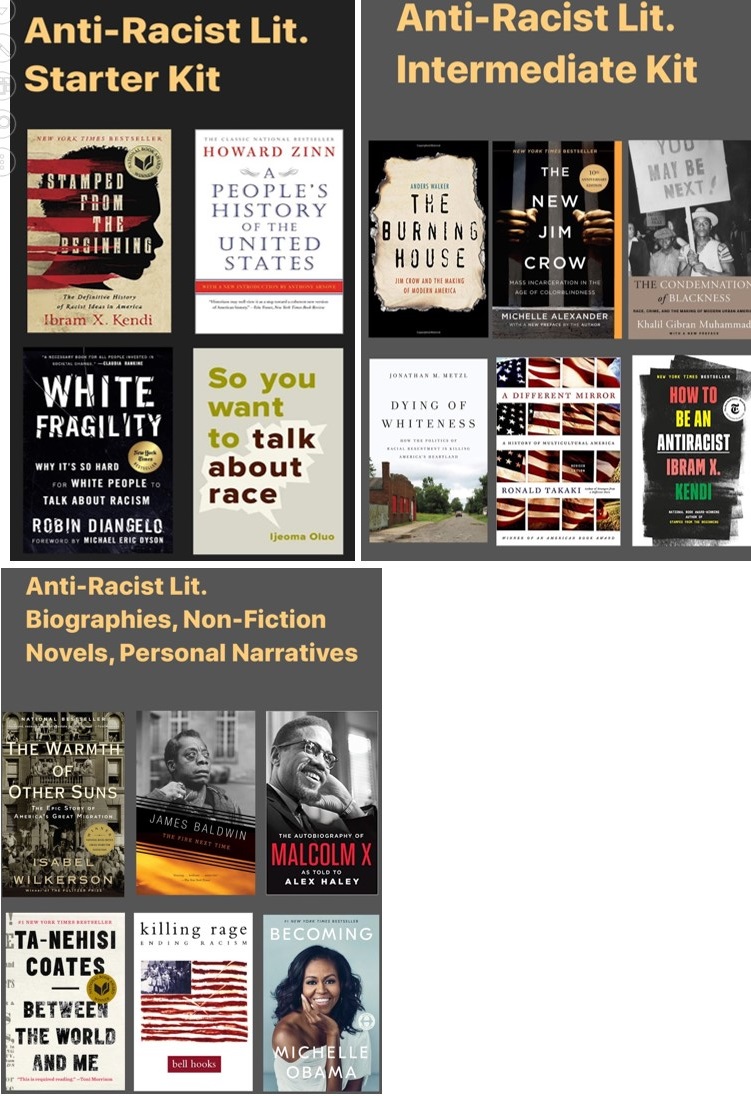
ABC Comment, have your say below:

ABC Lobbies and Helps Get an Extension to Evictions In England & Wales
EVICTION EXTENSION - Brilliant victory today. The Association of Pension & Benefits Claimants CIC, Crisis, Shelter and the Housing Federation have all been lobbying for an extension to the Protection from Eviction freeze by the government that has been extended two months.
New evictions in England and Wales of tenants in both social and privately-rented accommodation will be suspended until 23 August.
In our latest initiative Simon Collyer wrote to the Permanent Secretary for the Minister for Housing this week warning of the dire consequences of putting renters who have lost their jobs onto the streets at a time when things are very volatile. I think we hit the spot.
You can read our letter below.
ABC Comment, have your say below:

ABC Note please read our letter to Mr. Jeremy POCKLINGTON, Permanent Secretary MHCLG, below:

US Unemployment Grows
US UNEMPLOYMENT GROWS - The Labor Department reported that 1.9 million Americans filed new claims for state unemployment insurance last week, along with 623,000 new claims for federal aid available to the self-employed and others not normally eligible for state jobless benefits.
The numbers are truly amazing.
A whopping 47 million applications for benefits have been filed since the coronavirus pandemic began several months ago, reflecting almost 30% of the labour force before the crisis.
Yet the number of pandemic-related claims is not reflective of how many people are receiving benefits.
More people have been returning to work as states started to reopen their economies in May. A small number of claims have also been rejected and in some cases, people filed more than once.
The George Floyd murder by police and the ensuing civil unrest is distracting attention from the issue of the economy.
source: tradingeconomics.com
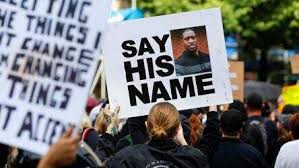
ABC Comment, have your say below:

Covid-19 Secure at Work Guide
HEALTH & SAFETY - Brendan Ryan, MD of 2468 sent us this handy guide if you are getting back into the workplace.
Working Safely during Corona Virus - downloadable guide & check list for employers
An overview of UK government advice with insights from workplace design and facilities experts, and a checklist for essential equipment - a useful handbook for employers.
ABC Comment, have your say below:

You can download the guide below:

Government Uses ‘Computer Says No’ As an Excuse For Disability Discrimination During Covid-19 Crisis
THOUSANDS - of disabled people have been missing out on an emergency out of work benefit top-up to help them through the Covid-19 crisis because the Government says it will take too long to make changes. Disability Benefits Consortium (DBC) is urging Chancellor Rishi Sunak to stop discrimination against disabled people by backdating pay
The Disability Benefits Consortium (DBC), a network of over 100 organisations, has been told the reason people on all legacy benefits have not received the same £20 uplift as those claiming Universal Credit is because it is “too complicated” for the Government computer system.
In addition, on 27 May Neil Couling, the Department for Work and Pensions’ (DWP) Senior Responsible Owner for Universal Credit, said the emergency £20 was only ever intended for new claimants, and it was a “windfall gain” for existing ones. He went on to say they wanted to help “people affected by the pandemic”, failing to acknowledge the impact the virus has had on disabled people – and will have for a long time to come.
This has meant for 60 days thousands of people living with a disability or with long-term health conditions – who tend to have lower incomes and higher costs than the general population – have missed out on financial help during the pandemic. This is despite a recent DBC survey1 finding 95% of disabled people had seen an increase in their costs as a result of the pandemic – from needing more money to safely access food to having to pay for higher heating and water bills while shielding at home.
Chris Bourne, 60, is from Leeds. He gave up work in 2019 to care for his wife Dawn who lives with secondary progressive multiple sclerosis (MS). Dawn receives Employment and Support Allowance (ESA) so does not qualify for the extra £20 a week. Chris says: “Dawn is among the most vulnerable people in this country, so it doesn’t make sense why we can’t get the £20 uplift. It might have only been a few months, but council tax and the water bill has already gone up. Having that £20 would help towards these essential bills – especially as I have no real wage other than the weekly £67 I get as a carer. We need that financial support.”
Last month, the DBC set up the ‘Don’t Leave Disabled People Behind’ petition which has received over 115,000 signatures. They have now written to Rishi Sunak MP urging him to end the discrimination against disabled people, and for pay to be backdated to when the top up to Universal Credit was introduced. Those who have signed the petition are also being encouraged to tweet the Chancellor, and over 130 people have written to their own MPs asking for urgent change. While the Social Security Advisory Committee has said “it is increasingly untenable for this group of claimants [people on legacy benefits] to be excluded”.
Anastasia Berry, Policy Manager at the MS Society and Policy Co-Chair of the DBC, says: “More than 130,000 people live with MS in the UK, and many who receive out of work benefits are being denied extra financial support at a time when they need it the most.
“To say the reason is because ‘computer says no’ is a slap in the face for the thousands of people in vulnerable situations who have been hit with extra costs to survive the pandemic. This is not an acceptable excuse, and we urgently need to see an increase in ESA and other legacy benefits so those living with MS, and other disabled people, aren’t left behind.”
Ella Abraham, Z2K’s Policy and Campaigns Officer and Campaigns Co-Chair of the DBC, says: “Discriminatory Government excuses are leaving over 2.5 million people without the vital support they are fully entitled to. At a time of crisis, the Government must stop wasting crucial time and extend the emergency £20 Covid-19 increase to all out of work benefits to ensure everyone is safe.”
Join the DBC’s call in demanding the Government to stop leaving disabled people behind.
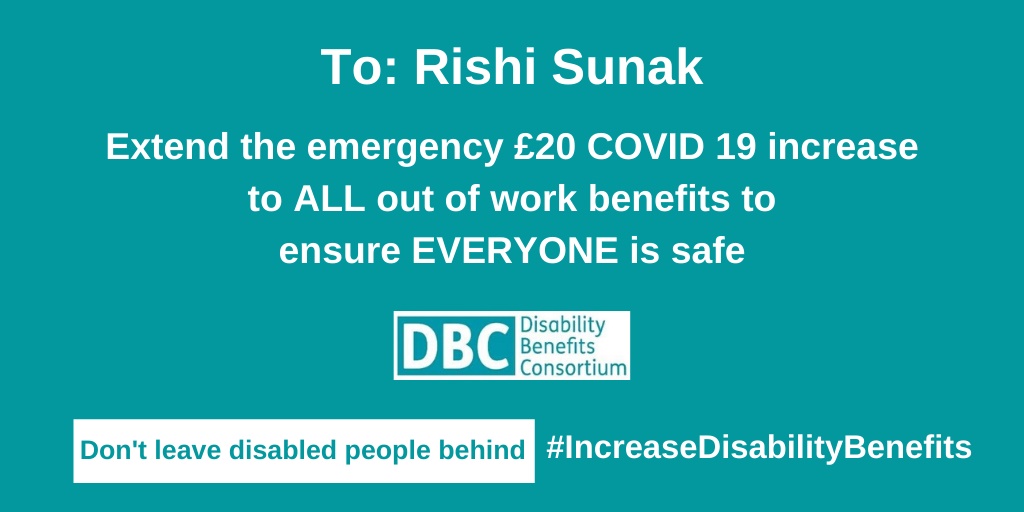
ABC Comment, have your say below:

Those Slippery People - Government Finds DWP Blameless
DWP COMPLAINTS - Our friends at Benefits at Work sent this today:
DWP Not guilty after all
The government has found the DWP blameless in relation to universal credit (UC) adverts last year which caused an outcry and were banned by the Advertising Standards Authority (ASA).
The adverts, pretending to be news articles, were found by the ASA to be misleading in at least three different ways.
This included the fact that statistics used by the DWP to show that people move into work faster on UC were five years out of date and related to people who had only been in work for a few hours.
However, an investigation by Government Communication Service (GCS) claimed that the ruling by the ASA was ‘harsh’ and that adopting ‘a more facts-based approach’ would lead to ‘dryer less impactful messages.’
Of course, a facts-based approach might also lead to the truth being told about UC, something which the DWP seems keen to avoid wherever possible.
LABOUR Calls for missing coroners reports to be published
Vicky Foxcroft, labour shadow minister for disabled people, has called on the DWP and Ministry of Justice (MoJ) to publish two missing reports on the deaths of benefits claimants.
The coroners reports were written in 2015 and 2016 and were both Prevention of Future Deaths reports, which highlight failures in practice by the DWP which could lead to the deaths of more claimants.
These are reports which the DWP was required to act upon.
And the MoJ was supposed to publish on its website
Without publication, it is impossible to tell whether the DWP did act upon them.
Disability News Service has made a string of unsuccessful attempts to obtain copies of the reports.
The MoJ claim that it would be impossible to find them because the reports “are filed under a limited number of categories but these do not include reference to the ‘DWP’”.
However, only around 500 such reports are created a year, so it really wouldn’t be that difficult to identify the missing ones.
The DWP meanwhile, insist that the reports are confidential and it is up to the MoJ to publish them.
Meanwhile, claimants continue to die needlessly because of poor practice by the DWP.
ABC Comments, have your say:

The Chartered Institute of Housing Ask Government to Prevent Evictions Spike Due to COVID-19
EVICTIONS - Government and many landlords have put in place temporary measures to help tenants keep their homes in the current crisis. Sustaining people’s incomes through the furlough scheme and calling a halt to evictions have created a temporary respite. But what happens when those temporary measures end? The ABC, Crisis, Shelter and other organisations have all been calling for an extension to measures to prevent evictions.
The Chartered Institute of Housing has today published proposals aimed at avoiding a potentially disastrous spike in evictions once the current protections end.
Working with barrister Liz Davies, CIH has developed a detailed set of proposals to avoid a crisis that could leave thousands homeless and cost landlords and local authorities millions.
CIH director of policy James Prestwich said:
“For the eight million households who are tenants of private or social landlords, a key part of the hardship and suffering during the crisis has been the struggle to pay their rent and worrying if they will be able to keep their home. If our society and the economy are to recover from the crisis, it is vital that these fears are allayed quickly and thoroughly.
“We do not start from a good place. Local authorities’ and social landlords’ resources for dealing with homelessness were stretched before the epidemic and could be overwhelmed if there is a sudden growth in evictions due to rent arrears.”
The hard facts
- • Of 5.6 million workers at high risk of losing their jobs because of the crisis, more than 1.2 million are private tenants.
- • Around 2.6 million private tenants have already missed a rent payment during the crisis.
- • Around a third of the ‘key workers’ who have kept services and supplies running earn less than £10 per hour. Many live in households dependent on two incomes to pay the rent, and where partners may have lost their jobs.
The furlough scheme helps to sustain incomes but has a shortfall of 20 per cent if not made good by employers. When the scheme ends people may lose their jobs, have lower earnings than before or have used up their savings. Protection against eviction currently ends in June. Even if it is extended, landlords are still able to start the eviction process if arrears accrue, resulting in a potentially massive number of eviction actions within a short period.
James said:
“The burden cannot simply be put onto landlords. That could lead to defaults on mortgages and enforced sales, which could deplete the sector just when that capacity is most needed. This needs government action too.”
What is CIH’s ‘post-Covid’ solution?
- Extend protection for tenants until evictions can take place safely.
- Prevent evictions solely arising from COVID-related arrears.
- End section 21 evictions.
- Make sure that payment plans for COVID-related arrears do not result in eviction provided the tenant agrees with and complies with the plan over a timescale of up to two years.
- Reform universal credit: end 5-week wait; temporarily suspend the benefit cap and the two-child limit; increase LHA to 50th percentile of rents for a limited period; end ‘shared accommodation rate’ for under 35s.
- Increase emergency fund for discretionary housing payments and ensure they are more widely available to help with rent arrears outside scope of universal credit.
- Introduce an interest-free loan scheme to cover landlords’ loss of rental income and give landlords mortgage holidays on rented properties to pass relief on to tenants.
- Consider one-off payments to stabilise local authority and housing association finances where these have been hit by COVID-related arrear
CIH chief executive Gavin Smart said:
“While the measures put in place by government and landlords are helping millions of people during this awful time, we have to think about what comes next. Simply ending all these measures without a plan to cope with the arrears built up through the outbreak risks pushing families into homelessness and landlords into bankruptcy, just at a time when a stable housing sector is needed to help rebuild our economy.
“Our proposals build on the work we have done with homelessness groups including Crisis and Shelter, as well as housing providers. They are practical and proportionate to the threat facing millions of people. We look forward to working with the government to make them part of our national post-COVID recovery plan.”
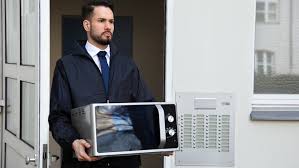
Image: Tenants are concerned about a wave of evictions once protection ends.
ABC Comment, have your say below:

House Prices Falling - Temporary Blip Or Start Of a Trend?
HOUSE PRICES – are taking a hit due to the pandemic.
The latest index shows house prices are down -1.7% month on month, although they are still 1.8% higher on an annual basis. Whether this is the start of a trend or just a blip who knows.
Marc von Grundherr, director of London letting and estate agent, Benham and Reeves, commented:
“You may well smell blood and believe that the sharks are now circling. But before you jump in and join them, remember that these numbers are taken from a paralyzed property market and anything other than a reduction would have been somewhat miraculous.
As the market tries to find its feet operationally a further decline should be expected over the coming months and would certainly not be out of the question.
However, as estate agents and other industry professionals adapt the the new norm of selling homes after lockdown, the market will begin stretch its legs and any predictions on the demise of the UK property market will turn out to be greatly exaggerated
Much like we saw during the Brexit process, those looking to talk both the market and house prices down are, more often than not, doing so for their own gain.”
ABC Note, please see the survey below:
ABC Comment, have your say below:

Young People Not in Education, Employment Or Training (NEET), UK: May 2020
ONS NEET FIGURES - The main points out today.
There were an estimated 771,000 young people (aged 16 to 24 years) in the UK who were not in education, employment or training (NEET) in January to March 2020; this was an increase of 6,000 compared with January to March 2019 and was up by 8,000 compared with October to December 2019.
The percentage of all young people in the UK who were NEET in January to March 2020 was estimated at 11.2%; the proportion was up by 0.2 percentage points compared with January to March 2019 and up by 0.1 percentage points compared with October to December 2019.
Of all young people in the UK who were NEET in January to March 2020, an estimated 41.6% were looking and available for work and therefore classified as unemployed; the remainder were either not looking for work and/or not available for work and were classified as economically inactive.
ABC Comment, have your say below:



